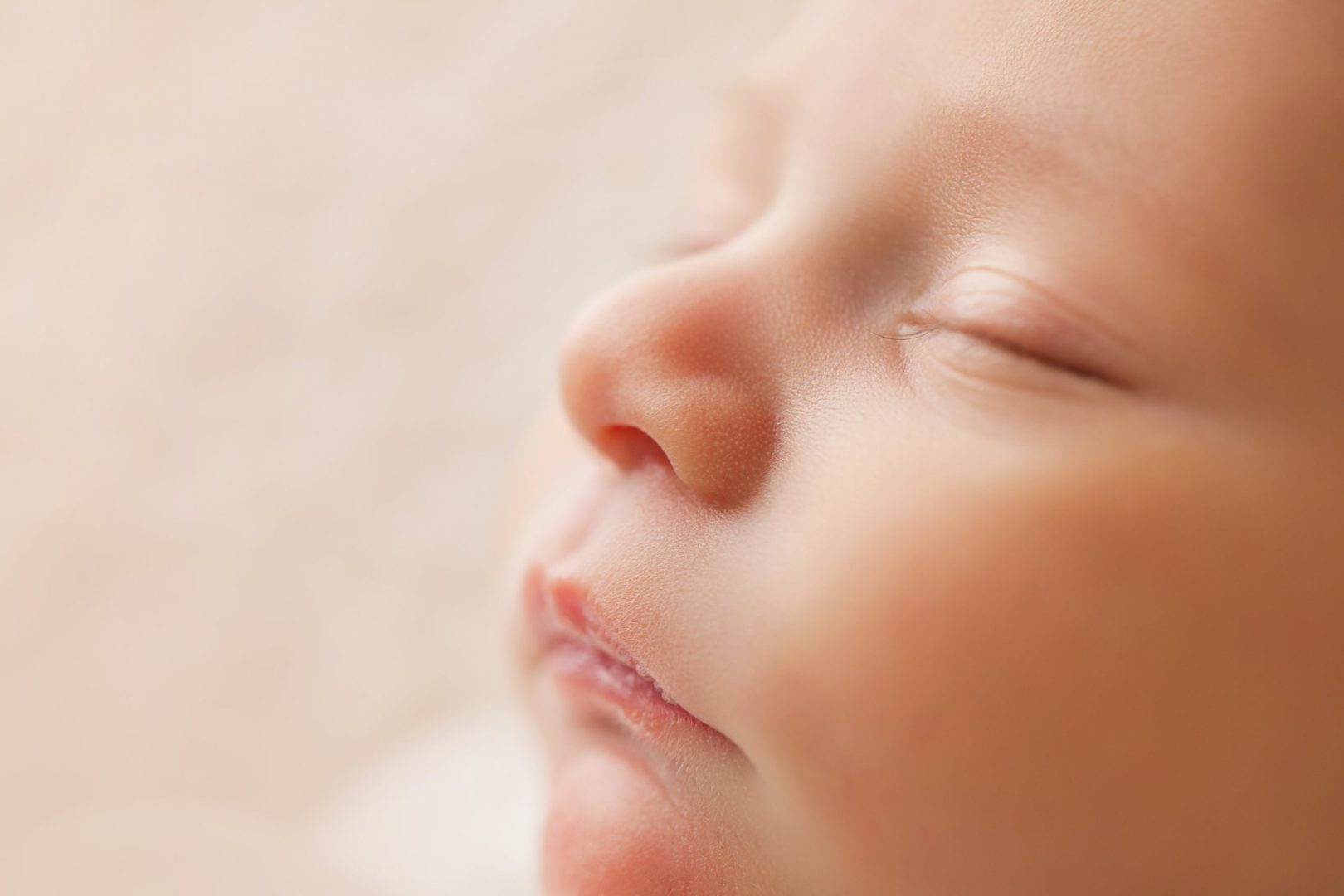The Essentials For Newborn and Infant Sleep

Less is more when it comes to newborn and infant sleep. Babies actually need very little in order to sleep soundly and through the night. Parents often come to me with questions and feel confused about what is actually needed. The truth is the list is actually shorter than you might think.
6 Essentials for Newborn and Infant Sleep
Here’s my list of necessities. Everything else is extra!
A crib (or bassinet or pack-n-play)
Your baby will need a safe place to sleep. The American Academy of Pediatrics outlines that the only safe place for your infant to sleep is alone, on their backs, and in a crib, bassinet, or pack-n-play. This space should be fitted with a tight sheet and there shouldn’t be any toys, bumpers, or blankets inside. A few pacifiers are ok and also recommended by the AAP.
White noise
Some may see this as an extra but it’s a non-negotiable in my book. A sound machine will help to calm and soothe your baby so that they can settle and fall asleep. The consistent white noise will also help your baby to stay asleep or put themselves back to sleep if they briefly rouse between sleep cycles.
I love white noise. I even recommend that you purchase a travel white noise maker for on-the-go. Alternatively, you can download a white noise app on your phone.
A tight swaddle, or sleep sack for older babies
Swaddles are one of the top essentials for newborn and infant sleep. The youngest of babies will almost always sleep more soundly when swaddled. This is because their Moro or “startle” reflex is still quite strong. I suggest swaddling your baby for all naps and overnight sleep unless you’re out and about and your baby is napping on the go.
Once your baby can roll, it’s no longer safe for them to be swaddled. A sleep sack is a wonderful transition out of the swaddle. A sleep sack still provides warmth and comfort. However, it’s safe for a baby to roll to their belly while wearing one.
As your baby grows and starts to stand in the crib and push limits, the sleep sack may keep your child from trying to throw a leg over the side of the crib. The last thing we want is a baby or toddler getting out of their crib before they are developmentally ready for the freedom of a bed.
A routine
Even the youngest of babies can learn to understand a routine. Establishing a bedtime routine is a fabulous place to start. I always recommend that families read a bedtime story, and sing a song before placing their child into the crib for the evening.
These bedtime rituals will help the baby to recognize that it’s bedtime and time for sleep. This routine can be carried over to daytime naps as well if the parent or caregiver has the time to do so. It may feel excessive at the beginning when the baby is napping 4+ times a day. However, once the child transitions to three naps a day, it’s a great practice to implement.
Schedule
In addition to implementing an age-appropriate bedtime routine, it’s also advantageous to implement a schedule during the day. Ideally, your baby is fed a bottle or nursed upon waking up in the morning and then after each nap. So your baby will wake, eat, play, and then sleep again.
This rotation should be repeated throughout the entire day until it’s time for bed at night. If your baby can become accustomed to eating at the beginning of the cycle rather than at the end, she will better understand when it’s time to eat and when it’s time to sleep. You as the parent will also be better positioned to understand why your baby is crying because presumably hunger and tiredness happen at very different times.
Patience
Last but not least, you need patience! Newborns and infants are tricky, and not every day is going to play out exactly the same. Take a deep breath, try to stay on track, and if the day or night feels hard, just know that tomorrow is another day!


